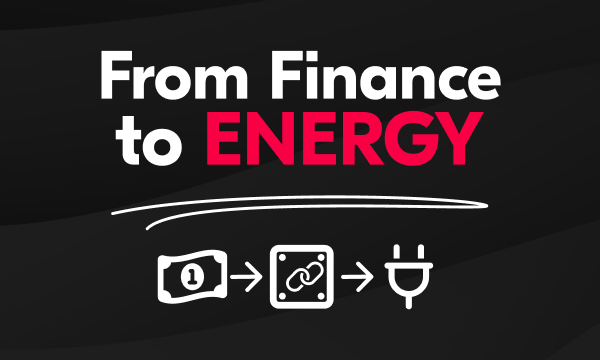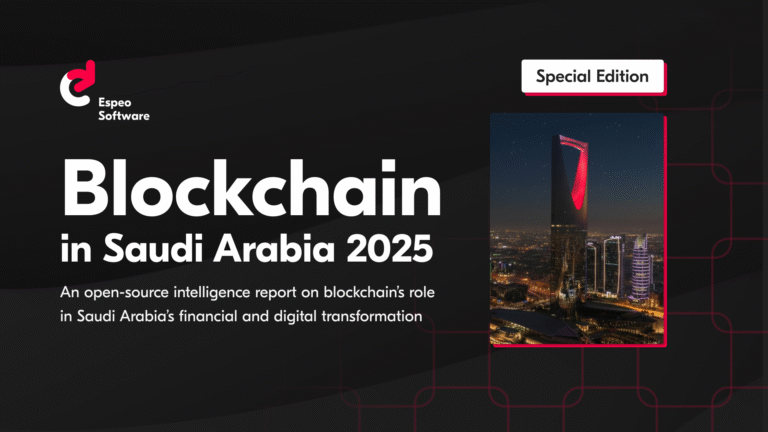Environmental sustainability has been a challenging field for management experts for a long time. This is particularly true for accounting professionals seeking to bring value and more transparent insights to customers. Multiple regulatory strategies give rise to this problem. That said, with the number of exchange-traded funds (ETFs) lined up for sustainability and environmental, social and governance (ESG) issues are now swelling and with billions invested in sustainability programs.
Despite this increasing investor and market interest, nevertheless, sustainability accounting is something of a work in progress. Blockchain technology is already having a significant influence on traditional accounting functionality, but the link between sustainability, blockchain, and accounting deserves further analysis.
In this article, I will discuss how blockchain technology drives sustainable accounting through sustainability reporting, operating in an environmentally sustainable way, transforming carbon and other environmental markets, creating new sources for sustainable finance, reducing transactional complexity, incentivizing circular economies, and connecting the bottom line to everything else going on in a company. But before that, let us briefly look at how sustainability goes beyond risk mitigation.
Sustainability is more than risk mitigation
While firms have long-established the business risks brought by issues such as scarcity of raw materials, air and water pollution, and climate change, and the essence of minimizing those risks, companies are only now starting to understand that sustainability is more than risk mitigation.
Done well, sustainability-driven programs- improving energy efficiency, rethinking supply chains, and transforming business models- have the potential to drive competitive advantage, innovation, and revenue growth.
But few companies realize the full extent of these benefits today: a majority of companies all over the world need a better understanding of how sustainability can be translated into various types of business value, and how they can effectively evaluate the return on sustainability-driven initiatives before they can achieve this potential. Only then will such companies establish the business model they require to accelerate and deepen the integration of sustainability into business strategy and operations.
Research has shown that companies with integrated, organization-wide sustainability models have better borrowing and revenue outcomes than their peers. These firms also consider revenue growth as the primary driver of their investment in sustainability.
Blockchain technology can have an intense effect on development-based investment, not only by revolutionizing international payment systems but also via improvements to access to finance, supply chain management, and digital identities. This influence goes beyond traditional financial services and business processes and extends to other essential sectors, like agriculture, healthcare, and transportation.
What is your potential blockchain ROI?
How can blockchain technology create new revenue opportunities for the accounting and financial service workforce? Precisely, how can specialists connect the seemingly distinct forces in sustainability, increasing accounting interest in this industry, and blockchain technology itself?
Blockchain transparency will drive better reporting
One of the greatest and often quoted problems with sustainability accounting is that businesses do not always reveal non-financial information with the same energy as financial information. This can be even more noticeable and significant concerning sustainability information, which drives bottom-line performance, and exposes the company to significant risks if it ignores defilements.
Blockchain technology fundamentally requires that all participants of the network communicate in an almost natural and transparent way. This implies that information concerning sustainability projects, not forgetting those with a financial orientation, like GE’s Ecomagination and those with an operational angle, like Coca-Cola’s Water Stewardship program, can be revealed, eliminating some of the dirtiness often associated with sustainability.
Blockchain’s data transparency not only facilitates collaboration between business parties but also fosters trust between businesses and consumers. For instance, the food and beverage industry faces rigorous compliance regulations that encompass everything from proper farming, processing, packaging, transportation, and storage of food- all meant to prevent foodborne diseases and strengthen the increasingly international food system.
Standards built on a distributed ledger
There are several models currently available in the market that try to link sustainability initiatives and financial outcomes. Integrated accounting, other multiple models, put in place by accounting associations, and business-specific projects, all exist. The issue is not the lack of standards, but rather the absence of a consensus as to what should comprise measures.
Smart contracts, in and of themselves, symbolize a perfect initial step towards creating standard and implementable protocols for executing businesses. Accounting for sustainability is not an exception but a priority.
If the information is uniform, and leveraging on the first point, deliberated transparently, accounting practitioners can enjoy the detailed conversations needed to develop and improve full sustainability accounting standards. Importantly, such standards can be used across other areas of the economy, compared to the restricted protocols.
Transforming carbon and other environmental markets
Blockchain technology can provide cryptographic tokens with a tradable value to improve existing market platforms for carbon (or other substances) and create new opportunities for carbon credit transactions.
A good case study is China’s Carbon Credit Management Platform, undertaken by Energy Blockchain Labs and IBM. The goal is that with the introduction of smart contracts, the transparency, auditability, and credibility of the Chinese carbon market will improve. In the future, blockchain could support an international carbon trading market for individuals, households, and companies.
New Sources for Sustainable Finance
Blockchain-based finance platforms could potentially revolutionize access to capital and open up a whole new class of potential investors for projects to tackle environmental problems, from investment in green infrastructure projects to facilitating blended finance or charitable donations for developing nations. More broadly, there is the potential for blockchain to bring a system change from shareholder to stakeholder value and from traditional finance capital to accounting for social, environmental, and financial capital.
Sustainability accounting is a revenue opportunity
This is probably the most exciting point for accounting experts desiring to create a business case about sustainability and technology. At the center of the growing technological integration, in the form of artificial intelligence (AI), blockchain technology and automation, financial services companies, and accounting businesses, in particular, are always looking for extra revenue lines.
The increasing interest in sustainability, besides indicating a reporting change, is also a chance for forward-thinking businesses. Clients and customers, both current and potential, are going to be held accountable by various stakeholder groups interested in how the company is performing, and how the company is getting those outcomes. Professionals with the ability to connect these dots, between blockchain, reporting, and sustainability, are going to be well-positioned to benefit from this prospect.
Blockchain technology, at least in the finance and accounting industry, is often regarded in equal measures of excitement and anxiety as it further hastens and magnifies the trends toward automation and eradication of traditional accounting roles. That said, only thinking about the potential of blockchain from the perspective of enhancing attest assets and tax roles overlooks the several opportunities blockchain can help create.
Reducing transactional complexity
Financial transactions involving massive, cross-border sustainable development initiatives are becoming increasingly more complex, causing backlogs and delays. Blockchain-based platforms (crypto exchanges) and processes can handle multiple transactions more effectively.
This implies that sustainable projects and other climate-related activities will be more appealing to investors.
According to a report from the World Economic Forum, “Blockchain-based platforms and processes can seamlessly handle a wide range of stakeholders working in various capacities on different projects globally. It will enhance efficiency, minimizing transaction and make climate-related, infrastructure, and other sustainable initiates more attractive for private investments.”
Incentivizing circular economies
Blockchain could completely change the way materials and natural resources are valued, handled, and traded through incentivizing people and companies to establish financial value from things that are currently wasted, discarded, or treated as economically invaluable. This could drive widespread behavior change and help achieve a truly circular economy. For instance, Plastic Bank has come up with a social enterprise that offers financial rewards in the form of cryptographic tokens in exchange for depositing collected ocean recyclable wastes.
Conclusion
Sustainability reporting, functioning in an environmentally sustainable way, transforming carbon and other environmental markets, creating new sources for sustainable finance, reducing transactional complexity, incentivizing circular economies, and linking the bottom line to everything else going on in the firm are trends likely to grow only more significant moving forward. Blockchain technology, already accelerating change in the accounting and finance sectors, can also open the doors to new opportunities for people and businesses eager to embrace these changes.
Related posts:



